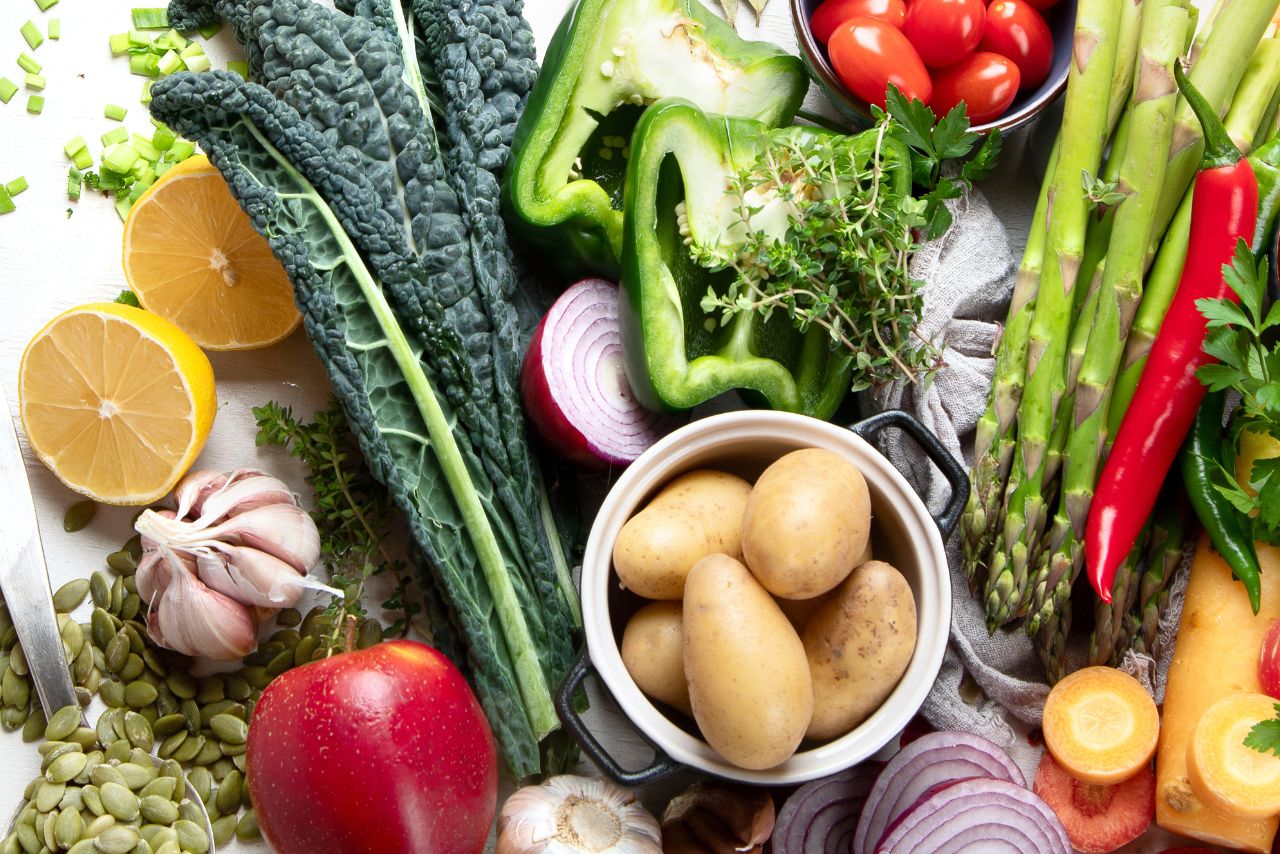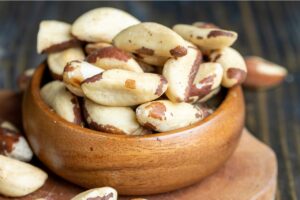Metabolism is a chemical process that helps our body stay fresh and functioning. It is also related to breathing and heartbeat. In medicine, it is said that the body survives and grows due to metabolism. It maintains body structure. Metabolism is thought to have three main functions in the human body. First, it converts food into energy; second, it converts proteins, lipids, nucleic acids, and carbohydrates into the building blocks of the body; and third, it removes nitrogenous substances from the body as waste.
This shows how important metabolism is for healthy living. Metabolic rates differ between sexes. Even body weight sometimes determines the rate of metabolism. The metabolic rate also depends on the food we eat. Many people may not know which of these foods reduce the rate of metabolism.
Table of Contents
What is Metabolism?
We are all more or less familiar with the term metabolism. It is a chemical process inside our body that breaks down various food ingredients to provide energy. This process produces and supplies energy consisting of calories and oxygen, which is the driving force of our body. Depending on the presence of oxygen, there are two types of metabolism: aerobic metabolism and anaerobic metabolism. If oxygen is present in metabolism, it is called aerobic metabolism, and if oxygen is not present, it is called anaerobic metabolism.
What does Metabolism Do?
Metabolism is an ongoing process that never stops. It continues even when we are resting or sleeping. This process constantly provides us with energy for various tasks, such as:
- Breathing
- Blood circulation
- Food digestion
- Cell growth and degeneration
- Hormone regulation
- Regulating body temperature, etc.
Why is a Strong Metabolism Important?
The nutrients we consume through food are converted into energy through the body’s metabolism. Slow metabolism means few calories are burned. As a result, the body stores extra calories, leading to fat accumulation. Faster metabolism minimizes the risk of weight gain. You can speed up the body’s metabolism by following some rules, including drinking enough water, sleeping regularly, eating fiber-rich foods, eating a full breakfast, and eating four to six times a day. Additionally, keeping certain foods in your diet will increase metabolism.
Factors that Regulate Metabolism
Muscle mass in the body: Muscle requires more calories to maintain shape than fat.
Age: Metabolic rate can decrease with age. However, some recent studies have shown that while there is a large change in metabolic rate around the age of 20, the change between the ages of 20 and 60 is more dependent on quality of life than age.
Gender: Males require more calories because they have more muscle mass, larger bone mass, and less stored fat.
Genetic determinants: Heredity causes differences in human body shape, which in turn leads to differences in metabolic rate.
Physical activity: Any type of physical activity burns calories and consequently increases metabolism.
Diet: Metabolism depends on diet. The type and timing of food are important. Certain foods can increase the rate of this reaction, but this is not entirely true. Tea, coffee, and some spices have the ability to temporarily increase metabolism, but the amount is very small.
Foods that Increase Metabolism and Burn Fat
Egg whites: Eggs are rich in protein and vitamin D. Many may say that the yolk is the main ingredient of the egg, so why leave the yolk and eat the white part? In this regard, you can recall the words of Chicago nutritionist David Grotto. According to him, egg whites are rich in amino acids that help keep your metabolism going.
Lean meat: Many avoid red meat for fear of fat. But lean meat is one of the best foods for metabolism. Iron deficiency, on the other hand, can slow down metabolism. And lean meat is full of iron, so it can be eaten in moderation.
Water: Another name for water is life, but it must be pure water. Dehydration, even very little, inhibits metabolism. For this reason, the clinical instructor of Emory University School of Medicine, Scott Isaac, suggests drinking some cold water. He said drinking cold water stimulates the body to consume calories to keep itself warm.
Pepper: Peppers contain chemicals that boost metabolism. It is one of the sources of vitamin C. Dr. Isaac recommends at least one teaspoon of chili powder in your daily diet. Moreover, doctors believe that a moderate amount of pepper is helpful in preventing stomach cancer.
Coffee: A study published in Human Behavior and Physiology claims that caffeinated drinkers have a 16 percent higher metabolic rate than others.
Green tea: Green tea has anti-cardiovascular and brain-enhancing properties. Besides, it has various benefits, including the prevention of diabetes and weight loss. Green tea also plays an effective role in preventing constipation.
Milk: Although milk is not tolerated by everyone, it is very beneficial for those who can tolerate it. Michelle Gemmell, the former director of the Nutrition Institute of the University of Tennessee, said that the calcium in milk is very effective for metabolism.
Whole grains: Whole grains require the body to break down more fat to digest than processed foods (such as bread or pasta). So this type of food has a positive effect on metabolism.
Lentils: Lentils are a great source of vegetable protein. They contain a lot of iron, and without iron, the body cannot break down calories and produce energy. Studies have shown that 20 percent of women suffer from iron deficiency. Researchers also claim that one cup of lentils every day fulfills 35 percent of the iron required by our body.
Foods rich in iodine: The thyroid gland plays an important role in helping the metabolism burn calories and control appetite. The thyroid needs healthy levels of iodine to do this. Make sure that iodine-rich foods are regularly on your diet. Iodine is found in salt, egg yolks, milk, dairy products, and oily fish.
Calcium-rich foods: Calcium not only strengthens bones or teeth but also increases metabolism by helping the body get calcium from food. Some studies have shown that calcium can also help reduce pounds and fat. Include healthy, calcium-rich foods in your diet. Low-fat dairy foods, broccoli, and sardines or salmon are good sources of calcium.
Low-glycemic foods: Low-glycemic index (low-GI) foods are relatively low in carbohydrates and are digested more slowly than high-carb, high-glycemic index foods. This means that blood sugar levels do not spike when they are consumed. Research suggests that a low-GI diet can help reduce the risk of diabetes, heart disease, and some cancers. Low-GI foods include green vegetables, chickpeas, most fruits, and beans.
Nuts and seeds: Nuts and seeds are an easy solution for a quick, healthy snack. They provide nutrients as well as increase metabolism. According to Beaurack, a handful of nuts or seeds between meals keeps blood sugar stable and provides essential nutrients. “They are rich in micro-carbs, fat and protein,” he added. Not eating enough food slows down metabolism, so eating nuts or seeds as a snack is an easy way to boost metabolism. “Keeping a packet of almonds with you will provide essential protein and curb hunger,” he advises.
Spicy foods: Spicy foods are known to boost metabolism. According to research published in the British Journal of Nutrition, ginger, black pepper, or mustard help increase metabolism. According to Beaurack, “Several studies have shown that chili sauce temporarily increases metabolic rate due to the capsaicin found in chili peppers.” He recommends eating chili sauce. According to him, chili sauce not only enhances the taste of the food but also avoids adding extra calories.
Water: Although water is not a food, it acts as an important compound to increase metabolic rate. “Water not only keeps you from overeating by making you feel full but also helps increase your metabolic rate and digest food,” says Beaurack. “It also helps to remove waste products from the body.” It sounds simple, but sometimes we forget to drink water due to the busyness of the day. In recommending daily water intake, Beaurack says, “Drinking half an ounce of water per pound of body weight meets the daily requirement. It is enough to drink a liter bottle twice a day instead of keeping track of glasses or cups of water.”
Tips to Increase Metabolic Rate
- Include more protein in your daily meals. If you eat more protein, your body will burn more calories during digestion.
- Drink enough water regularly. It will increase your metabolic rate. Water should be consumed at least 30 minutes before a heavy meal.
- Exercise regularly. HIIT (High-Intensity Interval Training) can be done after consulting a trainer. This type of exercise requires a lot of energy, burns calories, increases metabolic rate, and sheds unwanted fat from the body.
- If you sit quietly in one place for a long time, the tendency to lose calories decreases. Stand for at least 3 minutes after every half hour of sitting.
- Get proper sleep at night. If you have sleep problems, it affects your metabolism, which can lead to obesity and diabetes.
- Did you know that stress can reduce the speed of metabolism? Excessive stress causes two hormones, cortisol and betatrophin, to be released, slowing down metabolism. So try to keep mental anxiety under control.
Foods that Reduce the Rate of Metabolism
Sugar: Sugar is one of the worst foods for metabolism. It reduces the rate of metabolism. Many people are addicted to drinking sugary drinks. These sugars not only increase body weight but also slow down metabolism. So reduce sugar intake as much as possible.
Refined grains: Refined grains, such as white bread, pasta, white rice, etc., are easily digested. These foods increase blood sugar levels, but since they are low in fiber, they do not satiate for long. As a result, these foods can lead to metabolic dysfunction and cause weight gain.
Alcohol: Alcohol is often associated with weight gain and reduced metabolic rate. It is also responsible for the accumulation of harmful fats in the body. Therefore, it is better to limit or avoid alcohol consumption to maintain a healthy metabolism.
Processed foods: Processed foods, such as chips, cakes, and cookies, contain high levels of sugar and unhealthy fats. These foods can slow down metabolism and lead to weight gain. Avoiding or limiting processed foods can help improve your metabolic rate and overall health.
Ways to Keep Metabolism Rate Up
Exercise Regularly: Engaging in regular exercise, especially High-Intensity Interval Training (HIIT), is an effective way to boost your metabolism. HIIT requires a lot of energy, burns calories, and increases your metabolic rate, helping to shed unwanted fat from your body. It’s advisable to consult with a trainer before starting HIIT to ensure it’s done correctly and safely.
Avoid Prolonged Sitting: Sitting for long periods can decrease your metabolic rate. To counter this, try standing or moving around for at least 3 minutes every half hour. This simple habit can help maintain a more active metabolism throughout the day.
Get Proper Sleep: Adequate sleep is crucial for maintaining a healthy metabolism. Sleep problems can negatively affect your metabolic rate, increasing the risk of obesity and diabetes. Prioritize good sleep hygiene to keep your metabolism functioning optimally.
Manage Stress: High levels of stress can slow down your metabolism. This is because excessive stress triggers the release of hormones like cortisol and betatrophin, which can reduce metabolic efficiency. Practice stress management techniques to keep mental anxiety under control and support your metabolic health.
Eat Meals on Time: Eating meals at regular intervals helps maintain a steady metabolic rate. Your body thrives on routine, and timely meals support the physiological processes that govern metabolism. Avoid skipping meals to prevent metabolic slowdowns.
Maintain a Balanced Diet: A balanced diet that includes essential carbohydrates, proteins, fats, vitamins, minerals, and fiber is key to a healthy metabolism. Proper nutrition ensures that your metabolism functions efficiently, providing your body with the energy it needs.
Stay Physically Active: Physical work, whether through exercise or daily activities, helps your body burn calories and convert fat into energy. Incorporating physical activity into your routine can significantly boost your metabolic rate.
Quit Smoking: Smoking has numerous negative effects on your health, including impairing your metabolism. Quitting smoking can help restore metabolic balance and improve overall well-being.
Consult a Gastroenterologist: If you experience any digestive or metabolic issues, it’s important to consult with a gastroenterologist. They can provide guidance on maintaining a healthy metabolism and address any underlying problems.
Misconceptions About Metabolism
There are often misconceptions about fast and slow metabolism. People tend to assume that a fast metabolism is always good, and a slow metabolism is bad. However, metabolism is highly individualized and depends on one’s physical condition.
A person with a high metabolic rate burns more calories at rest, which can be beneficial for those who need to manage weight. However, this also means they may require more calories to sustain their energy levels.
On the other hand, someone with a slower metabolism may need fewer calories overall. This isn’t necessarily negative, as their body may naturally be more efficient at using energy.
It’s often believed that people with fast metabolisms are always thinner, but this isn’t always the case. Some individuals with a fast metabolism may not gain weight easily despite consuming large meals regularly. Conversely, dieting can sometimes lower the metabolic rate, as reduced food intake can slow down metabolic activity.
So it can be said that metabolism is essential for providing the energy our bodies need to function. Your metabolism plays a crucial role in maintaining your body’s energy balance and overall health. By understanding the factors that influence metabolism and incorporating the right foods and habits into your daily routine, you can optimize your metabolic rate and support your weight management goals. Remember that a balanced diet, regular exercise, adequate sleep, and stress management are key components to a healthy metabolism.
Bottom Line
Many people are concerned about unwanted body fat, but did you know that improper digestion of food can lead to fat accumulation? The body stores energy from food through metabolism, and whether or not food is properly digested depends largely on our eating habits.
If you want to lose fat, keep these three key points in mind when choosing your food:
Satiety: Opt for foods that keep you feeling full for longer periods. This helps prevent overeating and unnecessary snacking.
Blood Sugar Stability: Choose foods that do not cause significant spikes in blood sugar, as excessive sugar in the blood can be stored as fat.
Metabolism-Boosting: Include foods that enhance your metabolism, ensuring that your body efficiently converts what you eat and drink into energy.
By focusing on these principles, you can support your body’s natural ability to manage weight and maintain a healthy metabolism.









Pingback: Running vs Walking, Which is More Better for Fat Loss?